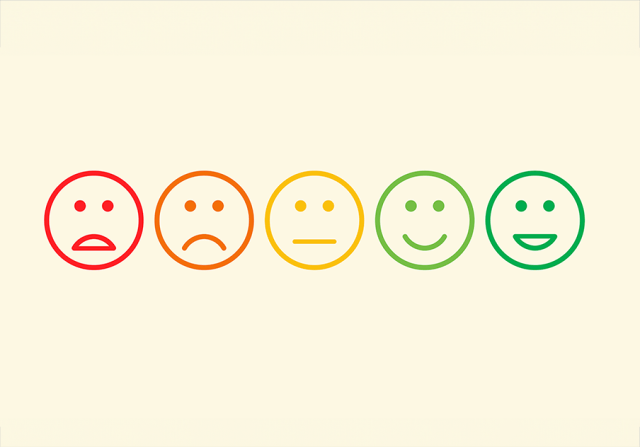Filter


Retirees’ Home Equity: Useful but Unused
Many older Americans could benefit from using home equity for some much-needed income in retirement. But they have found many reasons not to. Some want to preserve that housing wealth for their kids. Others don’t like the idea of cashing in on the equity if it means relocating to a smaller house or apartment or a less expensive neighborhood. They also have plenty of concerns about federally insured reverse mortgages, which are a way to extract equity but are complicated to understand. These doubts, expressed in readers’ comments on recent articles, are persistent. But economists see things differently: home equity has great potential to ease retirees’ financial problems – after all, roughly $8 trillion of wealth is locked up in…
July 15, 2021
Forced into Retirement? Downsize
Laid off from his job as a software engineer, Ken Wadland did something smart: he downsized. After losing his job in June 2009, it immediately became obvious to Wadland that he could not afford his large house in the Rhode Island countryside. He sold it and purchased a condominium to reduce his housing costs, which are the largest single expense for most households. The financial-services industry barrages baby boomers with tips for saving and investing their retirement nest eggs. But little attention is paid to the strategy of downsizing, an effective way for baby boomers to improve their retirement security by cashing in on the large amounts of equity built up in their homes over decades. “I’d rather not hav…
June 7, 2011
Retirement Countdown: Sheila Downsizes
Sheila Taymore could not afford the $2,200 mortgage and home equity loan payments, the enormous heating bills, and the repairs – so many repairs – on the home she’d owned for decades. Sheila Taymore, 60, of Salem, Mass. But selling it was emotional: she and her first husband had raised two sons in that house in the seaside town of Swampscott, north of Boston. Her decision to move was triggered by a recent divorce and came about two years after the death of her mother. “I walked around and cried and said, ‘Who cares about this house?’ I make all this money, and all my money was going towards my house,” said Taymore, a Comcast Cable salesperson – last year…
May 7, 2013
Readers Like a Travel Twist on Finances
Two of our readers’ favorite articles so far this year connected difficult bread and butter issues – personal finance and retirement – with a far more pleasant topic: travel. The most popular blog profiled a Houston couple scouting locations for a dream retirement home in South America, which has a lower cost of living. Another well-read blog was about Liz Patterson, a young carpenter in Colorado who built a $7,000 tiny house on a flat-bed trailer to radically reduce her expenses – so she could travel more. The downsizing efforts of 27-year-old Patterson inspired several older readers to post comments to the blog about their own downsizing. “From children’s cribs and toys in the attic, to collectible things from my…
July 3, 2018
Primer: Home Equity → Retiree Income
Americans who are 62 or older had an estimated $3.6 trillion in total equity locked up in their homes in the first quarter of 2014, according to the National Reverse Mortgage Lenders Association. A new primer suggests they should start thinking seriously about using it to generate some extra retirement income. The primer, published by the Center for Retirement Research at Boston College, which sponsors this blog, discusses two ways retirees can use home equity to generate income: by downsizing into a less expensive house or condominium or by taking out a reverse mortgage. Click here to read the booklet online and learn how these strategies work and how much money each can provide. Their pros and cons are detailed…
October 2, 2014
1 in 4 Seniors Have Little Home Equity
Retirees can use the equity sitting in their homes to pay for their daily expenses, out-of-pocket medical bills or nursing care, especially toward the end of their lives. Cash-strapped older retirees can access that equity by taking out reverse mortgages or home equity loans or by downsizing to less expensive homes or condominiums. But one in four Medicare recipients has less than $12,250 in home equity, according to a new report by the Kaiser Family Foundation, a healthcare non-profit. Kaiser’s calculations also show that the distribution of home equity among older Americans is – like the distribution of income and financial assets – top heavy. While 5 percent of Medicare beneficiaries in 2013 had more than $398,500 in home equity,…
April 8, 2014
Rising Stocks, House Prices Boost US Retirement Outlook
While COVID was raging, the jump in house prices and a rising stock market were dramatically improving U.S. workers’ retirement finances. In 2022, the share of households that were not saving enough to maintain their standard of living after they retire dropped to 39 percent, from 47 percent in 2019, according to the Center for Retirement Research, which sponsors this blog. That 39 percent is the lowest level in the nearly two decades the center has been analyzing the data in the Federal Reserve Board’s Survey of Consumer Finances, which is conducted every three years. But the news is not quite as good as it appears, because the increase in house prices in 2020 through 2022, which continues today, was…
March 28, 2024
Mortgage Rejections Surge after Age 50
You’re over 50. You have built up a lot of equity in your home, and your life savings is finally gaining some critical mass. And yet, your odds of being rejected for a refinancing mortgage start going up rapidly after age 50 and really accelerate around 70, according to a study by Natee Amornsiripanitch at the Federal Reserve Bank of Philadelphia. This evidence, concludes a recent summary of the study, “is large and robust.” The research has important implications for older workers trying to prepare financially for retirement or retirees planning to change their living arrangements. Higher rejection rates can throw a wrench into refinancing an existing mortgage, cashing out some home equity, and possibly downsizing to a less expensive home. Yes, rejecting borrowers…
March 30, 2023
Retirement is Filled with Surprises – Good and Bad
In a new survey asking retirees what surprised them about being retired, the big winner – for 43 percent – was how much they’re enjoying it. The rest of the survey indicates that the freedom that comes with leaving the labor force often serves to leaven the considerable sacrifices some have to make for financial reasons. One in four retired households, for example, agree they are “forced to live more frugally than we wanted,” and one in 10 said they’re “spending their nest egg too fast,” according to the survey, fielded in 2023 by Hearts & Wallets, which provides data to the financial industry. I also suspect that one pleasant surprise – having more income than when they were working…
May 9, 2024
Black America’s New Retirement Issue
The retirement issues facing black Americans can’t necessarily be lumped together for many reasons – there are high- and low-income blacks, and there are recent immigrants as well as longstanding families. A similar problem arises when treating the U.S. Hispanic-American population or the Asian-American population as a homogenous group. Having acknowledged this, however, some recent studies have highlighted the financial challenges particular to each group. For Hispanic-Americans, a major issue is that they live a long time but have low participation in employer retirement plans. For Asian-Americans, extremely high wealth inequality in their working population spills over into retirement inequality. This blog looks at the recent erosion in homeownership among black Americans since 2000, which threatens to further undermine their…
March 28, 2017
Mapping Out a Fulfilling Retirement
One might say that baby boomers on the cusp of retiring come in two varieties. Some cannot wait to retire and already have a plan. For others, the unknowns fill them with dread. How will I occupy my days? Should I do something meaningful, or is the goal just to have fun? And how do I figure this out? At 62, this writer really has no idea. For the other boomers who are feeling this way, take some comfort in knowing you are in good company. “I can’t say this strongly enough. There are some people who seem to literally not think about what their retirement might look like before they retire,” says Harvard Business School professor Teresa Amabile, whos…














